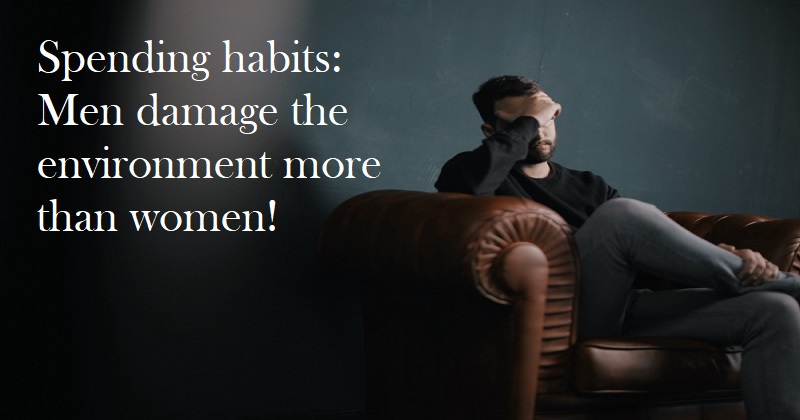
According to a research, despite spending roughly the same amounts, males generate 16% more emissions that contribute to global warming than women. The study, which was written up in the Journal for Industrial Ecology, found that the biggest disparity between males and women’s expenditure was on gasoline and diesel for automobiles.
Researchers claim that while being relatively understudied, gender variations in emissions should be taken into consideration when taking climate change mitigation measures. More than half of all emissions were attributed to food and vacations, according to a research that contrasted the emissions produced by single men and women in Sweden. During the Christmas season, it was found that both men and women contributed to around one-third of their yearly emissions.
The study found that cutting out meat and dairy from one’s diet and choosing rail travel as opposed to flying or driving may lower one’s emissions by 40%. Men’s and women’s differences must be taken into consideration when formulating policies, according to research authors from Ecoloop in Sweden. According to Ecoloop’s Annika Carlsson Kanyama, spending patterns are often quite stereotyped, with males spending more on automobile fuel, eating out, alcohol, and cigarettes while women spend more on home furnishings, personal care products, and clothing.
The research used data for those living alone since there was a lack of information on people living in families. The research recommends dietary adjustments and travel strategies since they don’t involve additional costs like buying an electric car and can help people lower their annual carbon output. According to a 2017 research, those who have fewer children, don’t drive, or don’t travel can have the most impact on the battle against climate change.
Men spend more money on energy and eat more meat than women, which results in higher emissions, according to studies from 2010 and 2012. Carlsson Kanyama notes that despite the very few research that have been done on gender disparities in environmental effect, these inequalities are clear and don’t appear to be going away any time soon.
The EU’s green plan came under fire this week for failing to address how gender affects climate change. One of the greatest concerns of our time, the climate catastrophe impacts both genders differently, according to Austria’s minister for the environment, Leonore Gewessler. Energy poverty disproportionately affects women, thus gender inequalities must be taken into consideration as we strive to find solutions and implement a shift that benefits everyone.

Post Your Comments